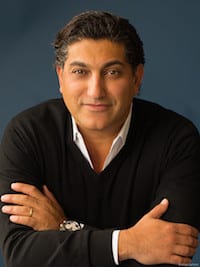
Portware Chief Executive Officer Alfred Eskandar took a leap when he joined the company in 2012. Despite the company having a great reputation for its technology, it was caught in the crosshairs of institutions cutting budgets and the overall industry outlook was tepid at best.
“The markets were coping with a low-volume, low-volatility, low-commissions period, and firms were struggling, with some brokers even closing down,” Eskandar told Markets Media. “There was a lot of stress and anxiety in the financial services area in general. Few people were investing in technology and everyone was consumed by the uncertainty surrounding new and pending regulation. It was a tumultuous time, especially if you were an independent technology provider to financial services.”
But Eskandar is no stranger to tumult, having been a part of the team that launched Liquidnet in April 2001 — between the dot-com bubble bursting and the cataclysm of September 11. So when Portware founders Ary Khatchikian and Eric Goldberg called, Eskandar became intrigued with the company’s business model, open technology, and market potential.
“Ary and Eric wanted me to reinvigorate the firm and figure out the best path for growth for the company and its clients. After getting to understand Portware’s client base, product offering, and position in the market, I saw something very advantageous that Portware could tap into — the unparalleled openness of its systems to meet the buy-side’s most complex challenges,” said Eskandar.
Eskandar will speak as a Fintech leader at Markets Media’s Summer Trading Network, which will be held at Carnegie Hall in New York City on Wednesday, July 15. The event will convene established financial technology firms, as well as start-up and emerging players and the venture capitalists that fund seedlings in the space.
The Portware CEO seat wasn’t to be passed up. “Walking away from something you spend 11 years dedicated to building is not easy, but Portware offered a unique and appealing opportunity.” The experience he gained navigating uncertain terrain with previous startups gave Eskandar the confidence that he could help Portware get through the post-financial crisis hangover.

Alfred Eskandar, Portware
“The challenge was, ‘how do you recreate that startup mentality in a 12-year-old company?’ I realized people here got excited about solving clients’ complex problems—this was in our DNA. My mission was to bring entrepreneurship, energy, and optimism to a group of great technologists developing a bulletproof product for a blue-chip client base.” Eskandar credits this marriage with Portware’s record growth. “We made a commitment as a firm shortly after I joined to win new Tier I clients, and our growth since then has been gratifying because it’s a testament to the importance of putting value creation at the center of our efforts.”
He continued, “Whenever you have a big idea, the number one motivation is to see that idea come to life—to see the product go to the market, to see the end client have that great experience. We know we still have areas to improve on. You’re never quite ‘there’ in the software space. So we’re continuing to add strategic hires to improve our client experience—an area we feel needs to constantly be improved, no matter the product or provider.”
The nature of his work at Portware was very different from Liquidnet, where he was part of a small team that literally helped build the company from scratch. “Because you inherit a culture, you inherit certain ways of doing things,” he said. “You inherit certain procedures and policies, and changing a culture versus starting one from scratch is much harder. You have a number of people who’ve been there for a very long time, who see relative success, and now you are saying, ‘The status quo isn’t good enough. We really need to change things.’ I think change is harder than starting.”
The company has been focused on creating transparency about its mission and its willingness to go the extra mile in developing its professionals. “We’ve invested a lot of time and money into them, from a professional development perspective and also getting them into the tent,” Eskandar said. “By that I mean, being very transparent about our strategy, about our priorities, about where we’re going, about what we’re doing, and just as importantly, about what we are not doing.”
Companies frequently make the mistake of trying to be everything for everyone, and that is a recipe for disaster. “We’ve created a very unique strategy that plays to our strength,” said Eskandar. “We believe in a team approach and work hard on making sure we attract and retain great people.”
By the end of this year the company will have doubled its size since Eskandar joined three years ago, with an even bigger jump in clients’ aggregate assets under management. “We are signing up the world’s biggest and most complex managers,” he said. “The AUMs that our clients represent has grown from less than $2 trillion to over $8.5 in about three years.”
Featured image via Rawpixel/Dollar Photo Club






